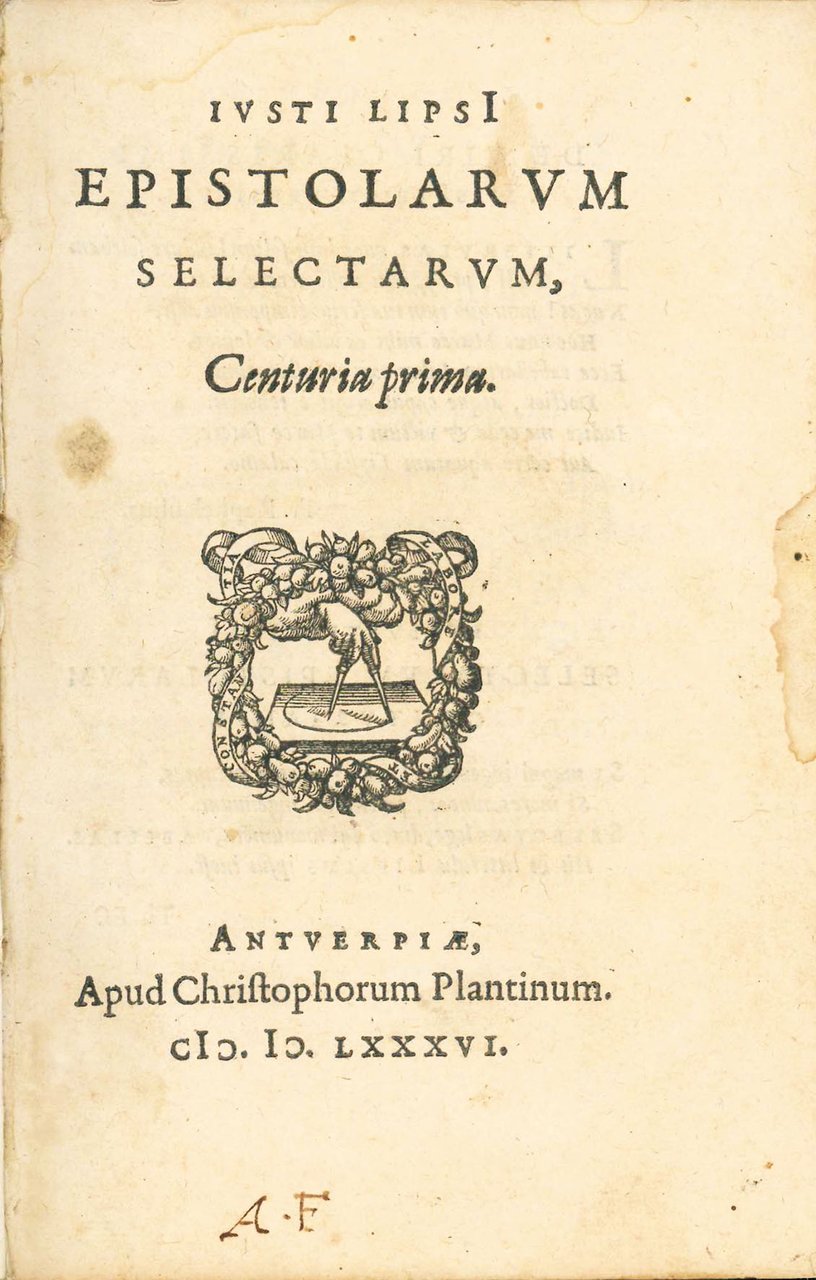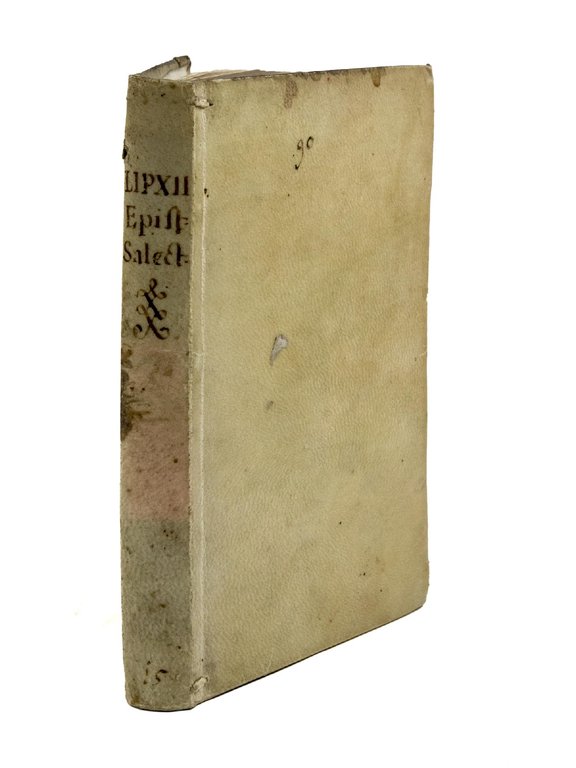

Libri antichi e moderni
LIPSIUS, Justus (1547-1606)
Epistolarum selectarum, Centuria prima
Christoph Plantin, 1586
900,00 €
Govi Libreria Antiquaria
(Modena, Italia)
Le corrette spese di spedizione vengono calcolate una volta inserito l’indirizzo di spedizione durante la creazione dell’ordine. A discrezione del Venditore sono disponibili una o più modalità di consegna: Standard, Express, Economy, Ritiro in negozio.
Condizioni di spedizione della Libreria:
Per prodotti con prezzo superiore a 300€ è possibile richiedere un piano rateale a Maremagnum. È possibile effettuare il pagamento con Carta del Docente, 18App, Pubblica Amministrazione.
I tempi di evasione sono stimati in base ai tempi di spedizione della libreria e di consegna da parte del vettore. In caso di fermo doganale, si potrebbero verificare dei ritardi nella consegna. Gli eventuali oneri doganali sono a carico del destinatario.
Clicca per maggiori informazioniMetodi di Pagamento
- PayPal
- Carta di Credito
- Bonifico Bancario
-
-
Scopri come utilizzare
il tuo bonus Carta del Docente -
Scopri come utilizzare
il tuo bonus 18App
Dettagli
Descrizione
Adams, L-815; Biblioteca Belgica, L-221; Voet, no. 1543; T. Deneire, “Laconicae cuspidis instar”. The Correspondence of Justus Lipsius: 1598. Critical Edition with an introduction, annotations and stylistic study, (Thesis: Louvain, 2009), p. 13; A. Gerlo, M.A. Nauwelaerts & H.D.L. Vervliet, eds., Iusti Lipsi Epistolae, (Bruxelles, 1978-1983), I, p. 20.
FIRST EDITION (there is also extant a variant with Leiden as printing place, where the volume was actually printed). On October 6, 1585 Lipsius asked Plantin's advice about the dedicatory letter to the volume. Personally he thought of Dirk van Leeuwen, ‘senator' of the Court of Holland and his close friend, but perhaps Plantin had someone else in mind. The work was finally dedicated to the magistrates of the city of Utrecht (Leiden, November 13, 1585).
The volume contains 86 letters by Lipsius and 14 addressed to him (cf. J. Papy, La correspondance de Juste Lipse: genèse et fortune des ‘Epistolarum Selectarum Centuria”, in: “Les Cahiers de l'Humanisme”, 2, 2001, pp. 223-236).
“[...] Juste Lipse, qui fut aussi, comme tous les grands humanists, un épistolier des plus zélés. Plus de 4.300 lettres écrites par Lipse ou lui adressées ont été conservées. Environ 800 lettres d'entre elles ont été publiées de son vivant” (A. Gerlo & H.D.L. Vervliet, Inventaire de la correspondance de Juste Lipse 1564-1606, Antwerp, 1968, p. 5).
“There is an obvious problem with publishing a letter that was originally destined only for one recipient. Lipsius criticized Coornhert for publishing their correspondence; ‘among the good it is the custom that letters written between two [men] perish with two. This sentiment, expressed by a man whose Centuriae of published correspondence spawned an entire genre, encapsulates the paradoxical rhetoric of Renaissance letter-writing and the friendship which it sustained; it was a seemingly private language geared (often) toward public consumption and use. And this unease is apparent in the preface of his first Centuria, where Lipsius professed to be ‘somehow willing unwilling' to publish the work. The publication of his later Ad Hispanos et Italos (1601), the first Centuria to appear after his reconciliation, was justified on account of the possible loss of the original letters - in other words, they were still published with the original recipient in mind. Lipsius also claimed that his letters offered general advice; ‘we offer counsel, warning, precautions, especially to young people, who I have always attempted to lead not just to pleasantries, [but] to usefulness, and to place them in mind and vigour above the common people'. The main aim of Lipsius' Centuriae, however, was to offer the reader a chance to get to know its author. Lipsius insisted on his sincerity: ‘not only (I am telling you the truth) do I not write twice, I hardly read them [my letters] twice. They emanate from me through a certain transparent channel straight from an open heart; they are as my mind or body is at the moment I write' ” (J. Machielsen, Friendship and Religion in the Republic of Letters; the Return of Justus Lipsius to Catholicism, 1591, in: “Renaissance Studies”, September 2011, pp. 4-5).
“From April 1583 to August 1585 Christopher Plantin had been living in Leiden and had established a second branch of his Officina. As soon as he was back in Antwerp, he realized that the political situation made it impossible to import or sell any works originating from the Leiden presses. On April 15, 1586 Plantin contacted Willem Breugel, member of the Council of Brabant and related to Lipsius. His Leiden partners had send him a few copies of Lipsius' Centuria prima, which he had submitted for approval to the responsible ecclesiastical book censors in Antwerp. Since they found no offence, he presented the Centuria to the States of Brabant, asking Breugel to insist that they t

